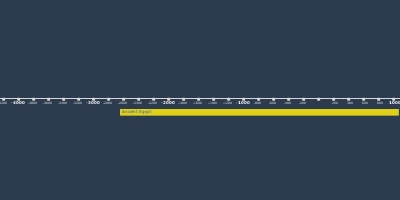Ancient China - Zhou Dynasty (21 nov 1046 anni a. C. – 21 nov 256 anni a. C.)
Descrizione:
The mandate of heaven determines whether an emperor of China is virtuous ( morally good behavior and character) to rule. If not, he loses the mandate and thus loses the right to be emperor.Two main principles:
The emperor’s virtue determines his right to rule.
No one dynasty has a permanent right to rule.
Possible signs of that a ruler has lost the Mandate → peasant uprising, invasions by foreign troops, drought, famine, floods, and earthquakes. Droughts and floods led to famine.
Different than the kings of Europe because…
In China, rebellion was justified (okayed).
Wasn’t hereditary (by birth), even a peasant could be an emperor.
Fear of losing the mandate made rulers act responsibly in carrying out their duties.
Aggiunto al nastro di tempo:
Data:
21 nov 1046 anni a. C.
21 nov 256 anni a. C.
~ 790 years
